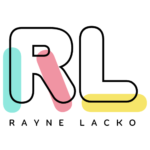Have you ever read a book on the writing process that could not simply be read, savored and applied to your practice? Unable

to sit quietly on your bookshelf amid other volumes of writing advice, certain publications stir your inner creative force and cry out to be shared. (If you would like to tell us your favorite book on writing, click here!)
Writer Jes Davidson has one such hot property and she is ready to spread the good word. The blogger for Free Your Pen, Ms. Davidson won the Euroscript Screen Story Competition with her screenplay THIS OTHER EDEN in 2008.
The Brighton, UK, resident’s winning screenplay is pitched as follows: “A reclusive carpenter leaves his isolated shack in the woods to embark on a horse-drawn odyssey through the wilds of Northumberland on a quest that will reawaken his heart, transforming his life forever.”
Davidson recommends FEARLESS CREATING by Eric Maisel, a guide to the creative process, packed full of advice, support and exercises. “It’s written for artists,”he says, “but what he means by that is anyone who creates. Creating is a powerful and scary activity, and I find myself returning again and again to this essential book.”
Eric Maisel sets out six stages of the creative process. The first stage of the creative process is about nurturing your dream, your desire to create something. Eric Maisel calls this stage WISHING. It’s where you go looking for ideas and inspiration, stories to obsess over, dramas to enact. This section also resonates with me as I continue to wrestle with my outline. I’ve received plenty of helpful advice from experience writers (and readers) but in the end, I must sit quietly and allow the story to unfold in my imagination. Here are excerpts from Jes Davidson’s review of the book:
The Desire to Create
To feed your desire to create you must be still – inside – give yourself space to allow what wants to be created to come out and play.
As you quiet down inside, hold the idea in your mind, turn it round, look at it, let it breathe. What does it want to be? Who is this character? Don’t force it or second guess. Let your imagination go loose, let it play, see what happens. Write it down.
Hungry Mind
The anxiety of this stage is called Hungry Mind anxiety. This is where you can get overwhelmed by all the possibilities and ideas running around in your head – where do I start? What is it anyway? It might be nothing. It’s a lot of work.. You start to argue with yourself about whether or not the story should be written, before you’ve even worked out what it’s about.
This swirling chaotic mess in your head is a good sign. It means you want to create something and it’s absolutely normal. This is the kind of anxiety you will have to accept if you want to spend your time creating anything. Get used to it. The worst thing to do in the face of this anxiety is to shut down, turn away, switch on the TV. You need to feed your creativity.
Appropriate Feeding (of your mind/creativity)
Follow the Work – do what the story requires of you. I spent hours at the beach with my camera whilst working on the first draft of Bluebird. (A psychological thriller set in the surfing community at Tynemouth.) I walked the streets my protagonist walks, stood in the sand and watched the surf, and noted how moods change with the light. I’m sure it’ll end up in the script somewhere.
Plant Seeds – give your imagination something to work with. I keep a folder full of ideas, scraps of paper covered in scrawl, clippings from newspapers, half thought out possibilities. Every now and then I sift through what I’ve collected. Something will always surprise me.
Think by Feeling – this one’s for the intellectual types: don’t over-think everything. Keep in touch with your feelings by feeling them – laugh, cry, live. You are not feeling when you’re talking or thinking about your feelings. As Bruce Lee says in Enter the Dragon, “Don’t think, feel.”
Eat with Two Hands – dig deep into research for the work. Obsess over it, dream it, devour it. Let your story penetrate every pore, every nook and cranny of your life.
Find Masters – return to and relive books and films that have inspired you. It will fan the flames of your enthusiasm. Remind yourself why you wanted to write in the first place.
Serve – share your enthusiasms and your joy. Teach others what you need to learn. This is partly the motivation for this blog.
Hush – be still, be silent. Surrender to the trance of working. Let the writing take you, let it lead you where you need to be.
Think Well – analyse what you’re trying to do. Think about life and art. What have the masters taught you, what do you know from experience? Think about why you think the way you think. Why do you write the stories you write? Why this story? Why now?
You will need to be able to combine systematic, left-brain type thinking with more free-flowing, imaginative right-brain type thinking – and jump back and forth between them. It is possible to do both simultaneously on different levels, as it were. Your head runs through the permutations while your guts and heart let rip with intuitions and inspirations. It’s a matter of being willing to stop and start thinking, change gears mid-sentence, jump from image to words to sensations to sounds – mix it up.
The important thing at this stage is to affirm your desire to create. Do everything in your power to support that desire. The more you undermine yourself at this stage the more likely you are to give up. And you know you’re not a quitter.
What do you think? How do you feed your creative urges? Share your best advice in the comments below..
To find out more about Eric Maisel and Fearless Creating go here
Jes Davidson is currently working on a new screenplay, BLUEBIRD (A psychological thriller set in the surfing community in Tynemouth. A young woman fights to free herself from the past and find the perfect wave); and a novel, ADDLED (Zoë Popper thinks she’s losing her mind, but reality could be stranger than she realises. Addled is the story of her search for enlightenment, true love and the perfect chicken kebob.)

